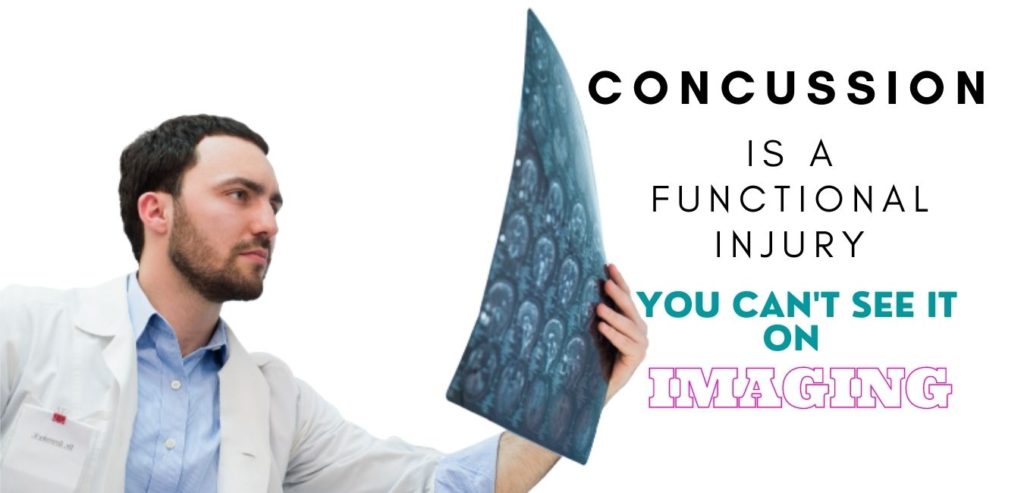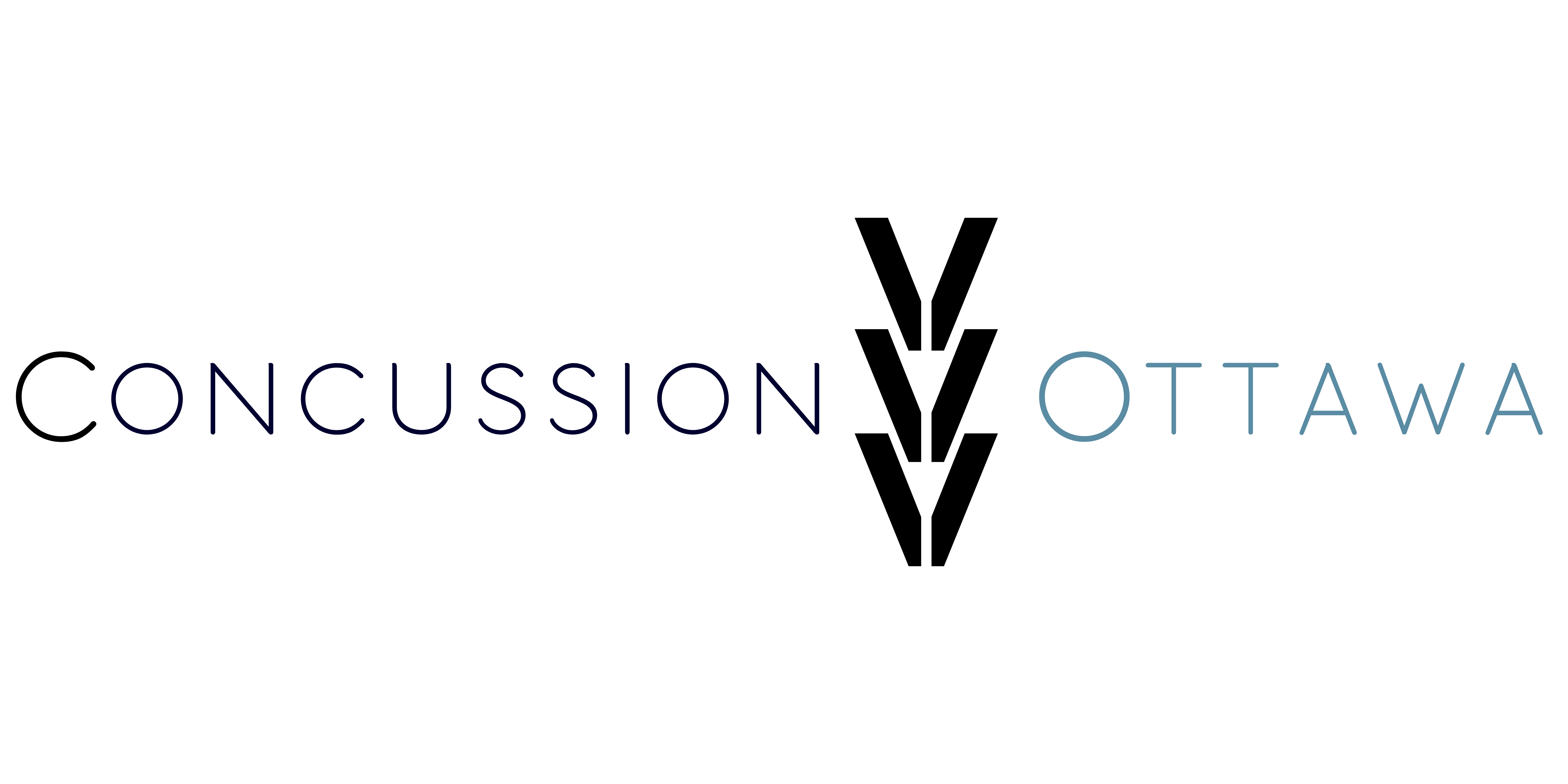
WHAT IS A CONCUSSION?
A concussion is an acute injury to the brain that causes a temporary disturbance in how your brain functions.

This disturbance of brain function can be caused by a hit to the head or torso that results in significant acceleration and deceleration forces acting on the brain.
To diagnose someone with a concussion, you would first need to be examined by a qualified health care practitioner such as an emergency room physician, nurse practitioner, an experienced sports medicine doctor, or chiropractor.
From the examination, you would need to have had the above mechanism of injury which has resulted in you experiencing any one or more of the following symptoms to diagnose a concussion:
- Headaches
- Neck pain
- Sensitivity to light/noise
- Visual changes
- Dizziness
- Balance issues
- Nausea
- Vomiting
- Poor memory
- Difficulty concentrating
- Confusion
- Feeling slowed down
- Brain fog
- Trouble thinking clearly
- Anxiety
- Nervousness
- Depression
- Sadness
- Irritability
- Emotional fatigue
- Low energy
- Poor sleep quality
- Difficulty falling asleep
Everyone feels it differently.
Concussion symptoms are not the same from one person to the next. Each injury is unique, and more importantly, everyone has different preexisting conditions that may contribute to how they recover.

A common thread with every concussion is the damage to the neck called whiplash associated disorder (WAD). To cause whiplash, only a small amount of force acting on the body is required to damage the joints of the neck (4-7 G’s). Where as a concussion injury involves damage to the brain tissue, the force acting on the body required to create this injury is far higher (70-120 G’s).
Therefore, every concussion will include whiplash to some degree.
This is because it only takes a small amount and by default, the head is attached to the neck. You can’t move one without the other. Therefore, treating the neck injury will help with recovery from concussion symptoms. The really interesting thing about whiplash and concussion injuries are that the list of symptoms are identical for both injuries.

What causes the symptoms of a concussion?
Current research still requires more analysis to definitively establish the causes. However, It is believed to be due to a combination of the following:
- Changes in blood flow to the brain
- Joint restrictions of the neck
- Altered chemistry in the brain (like changes in sodium, potassium and calcium concentrations…etc)
- Traumatized nervous and brain tissue that is often temporary, localized, and microscopic.
- A mismatch in energy supply and demand within the brain.
How Not to Lose Your Recovery Time.
- Regardless of having a concussion or whiplash injury, getting assessed by a trained specialist such as an emergency room physician or nurse practitioner to rule out more significant injuries like a neck fracture or brain bleed is incredibly important.
- Prolonging the rest period beyond 48 hours is a no-no! Research shows that the sooner consistent cardiovascular, vestibular, and strengthening exercises are performed, the better the recovery.
- Adjust the whiplash associated joint restrictions in the neck that are interfering with the blood supply to the head and causing neck pain.
- Clean up your diet! What happens in the intestine determines what happens in the brain. If you are consuming healthy whole foods that are low in simple carbohydrates, cut out all sugar, reduce pro-inflammatory foods like red meat, dairy, processed foods, grains, and alcohol, and stay hydrated to boost your body’s ability to heal.
- Sleep! Our bodies heal best when we sleep. the magic number is 8-9 hours of sleep.
How does cranial acupressure help?

Cranial Acupressure Technique is the new method of treating head injuries and concussions. This approach focuses on the areas of the head and neck that are often missed on examination. Research has shown that the bones of the skull are completely NOT FUSED and that a very small space exists to allow for very slight pressure changes within the skull.
When a high amplitude force hits the head, the placement of the bones can be affected. These impacts can change the pressure on the brain causing symptoms such as brain fog, irritability, head pain and, poor concentration…etc.
By applying a constant pressure on the different sutures of the skull that have been impacted, cranial acupressure technique relieves the stress caused by the impact and decreases brain fog, irritability, head pain and poor concentration… etc.
